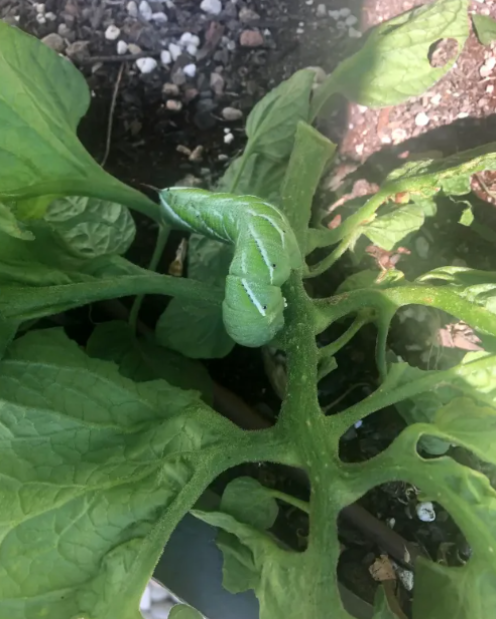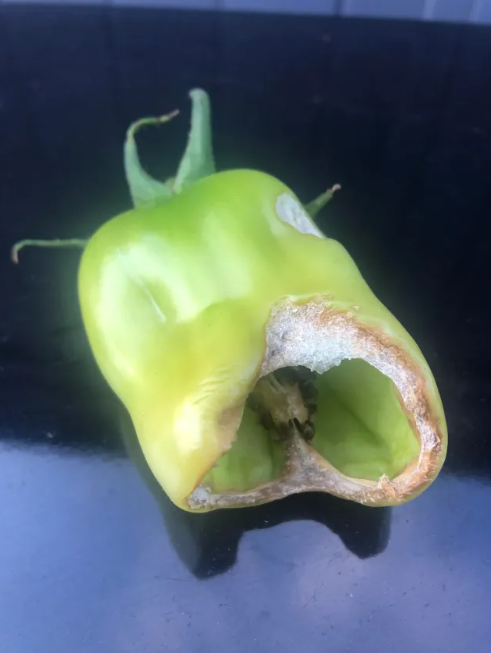Growing fruit and vegetables in your garden can be extremely gratifying, especially when you get to finally taste the produce you have so lovingly grown.
But it can be pretty frustrating when something gets a bite before you do.
In the r/Tomatoes subreddit, one user posted a picture of their San Marzano tomato plant with a guest diner.


"Tomato hornworm taste tested San Marzano," they captioned the image.
Sure enough, a plump caterpillar can be seen enjoying a meal on the tomato plant. A subsequent image shows that its eyes might have been too big for its stomach, though, with only half of a tomato "victim" devoured.
"Does it mean he didn't approve of the taste of the San Marzano since he didn't finish it?" the Redditor questioned.
To stop any further unauthorized mealtimes, another user suggested a different tasty treat might just keep them away from more prized items.
"I've planted so much basil they will not come near any of my peppers or tomatoes," the Redditor observed.
According to Farmer's Almanac, tomato hornworms are common in North American gardens, and they also feed on potato plants, pepper plants, and eggplants.
You can tell a tomato hornworm from a tobacco hornworm, a similar species, by its white V-shaped markings and black horn on its tail end.
As interesting as they may look, it might be wise to get rid of the creatures before their appetite proves to be your crop's downfall.
The Almanac suggested handpicking the animals from the plant, noting they are not dangerous and don't sting or bite. Alternatively, dropping them in soapy water or feeding them to your chickens is another pest-control solution.
And for future prevention, tilling the soil can "cause up to 90% mortality" in larvae, while wasps are one of the hornworm's natural predators, so it's good to keep them around.
Don't let the tomato hornworm ruin your love of gardening, though.
According to Ohio State University, gardening helps to stimulate the brain and reduce the risk of cognitive decline. It also noted that studies have shown the increase of cytokine in your body from gardening can activate the "feel-good" hormone serotonin, explaining the feeling of calm and relaxation when being green-fingered.
Join our free newsletter for easy tips to save more, waste less, and help yourself while helping the planet.









